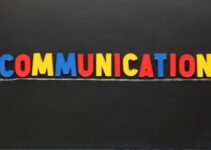What is Listening?
Effective listening is the process of analyzing the sounds, organizing them into recognizable patterns, interpreting the patterns and understanding the message by inferring the meaning.
Listening is not to be confused with hearing. Hearing is a physiological process which involves receiving the sound waves by the eardrum and transferring them to the brain. Listening is more than hearing. It involves the process of interpretation and inference.
Listening is extremely important for the communication process. Many of the problems we experience with people are primarily attributable to ineffective listening or lack of listening. Good listening skills are the foundation of effective human relations. Good listeners can be good negotiators and can handle crisis situations successfully.
Objectives of Listening
The objectives of learning may be one or more of the following:
- To learn
- To increase one’s understanding
- To advise or counsel
- To relieve one’s boredom
Importance of Listening
A lot of one’s time is spent on listening. One quarter of our waking time is spent in listening. Research shows that at the workplace, on an average, personnel spend about 32.7 per cent of their time listening, 25.8 percent of their time speaking and 22.6 percent of their time writing. Effective listening is one of the most crucial skills for becoming a successful manager. This requires paying attention, interpreting and remembering sound stimuli. Listening is an important skill to be inculcated by managers and workers.
- Communication is not complete without effective listening.
- An attentive listener stimulates better speaking by the speaker.
- A good listener learns more than an indifferent listener.
- A good listener can restructure vogue speaking in a way that produces clearer meaning.
- A good listener learns to detect prejudices, assumptions and attitudes
Listening Process
For listening to be effective and meaningful, the process of listening should involve the following steps.
Hearing
Hearing is the first essential step in the listening process and relates to the sensory perception of sound. The listener further processes the perceived sound. For learning to be effective, hearing needs to be done with attention and concentration.
Filtering
The next step involves sensing and filtering of heard sounds. The heard message is categorized as wanted or unwanted, useful or useless. The unwanted message is discarded. In this step, the sense of judgement of the individual comes into play, that is, the filtering process is subjective and a person chooses to retain what makes sense to him.
Comprehending
The next level of listening consists of comprehending or understanding. The listener understands or interprets what the speaker has tried to convey. This activity can be described as absorbing, grasping or assimilating. In order to grasp the meaning of the message, the listener uses his knowledge, experience, perception and cognitive power. The verbal and auditory message is coupled with non-verbal communication to understand it.
Remembering
Remembering relates to a process whereby the assimilated message is stored in memory to facilitate future recall. Remembering assumes significance because many times messages received are meant not for immediate consideration but for future use.
Responding
For listening to be complete, a response is important. Responding to a message may take place at the end of the communication, immediately after or later. When it is stored for future use, the response may take place later. However, if there is a need to seek clarification or to empathize with the listener, it may take place earlier. Responding may also take the form of prodding or prompting in order to show that the message is being received and comprehended.






